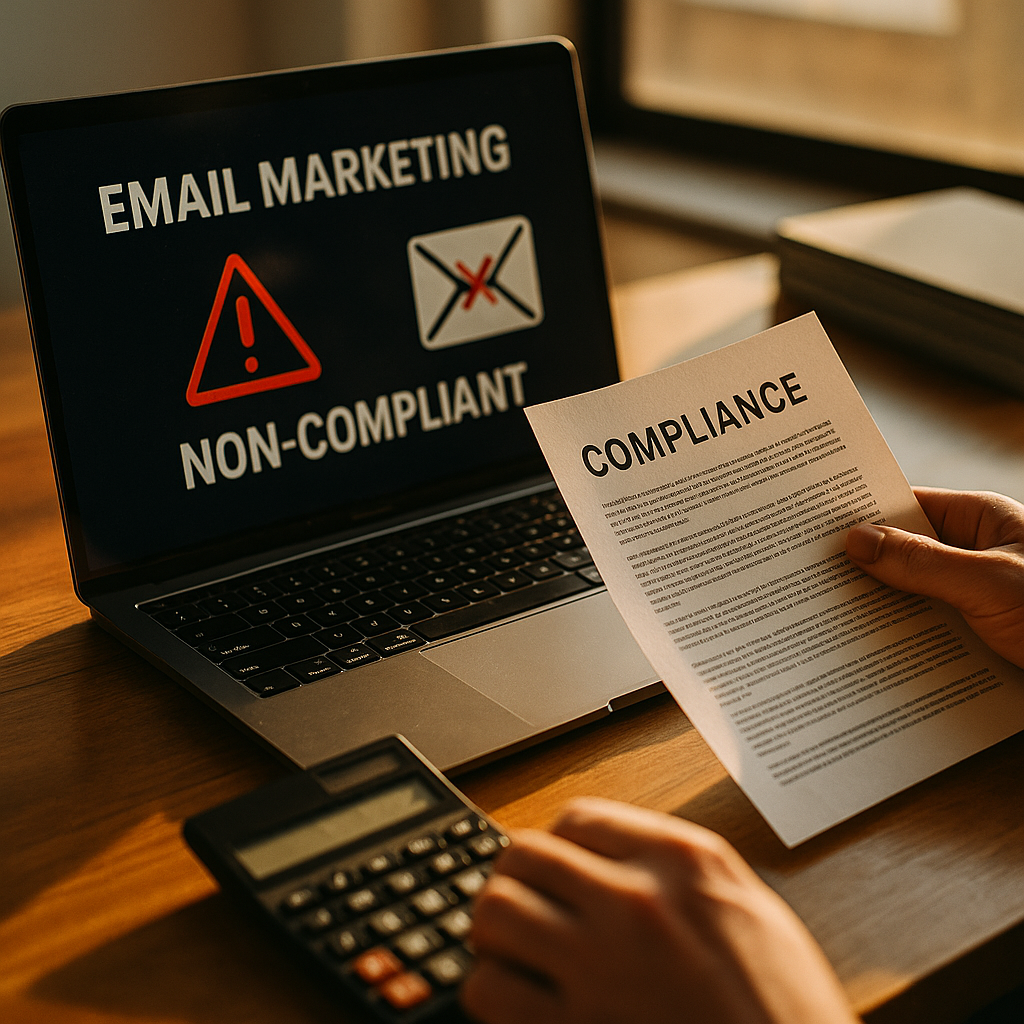Email marketing remains a powerful tool for businesses, but failure to comply with anti-spam laws can be costly. This post-mortem explores an email marketing campaign that violated anti-spam regulations, offering actionable lessons from real-world mistakes. Read on to discover crucial compliance strategies and proven steps for safeguarding your brand’s reputation and bottom line.
The Importance of Email Compliance in Campaign Execution
Ensuring email compliance has never been more vital for digital marketers. Anti-spam laws, such as CAN-SPAM and GDPR, are designed to protect consumers from unsolicited messages and data misuse. With enforcement intensifying in 2025 and fines for violations reaching record highs, businesses must prioritize consent and transparency. This section outlines why respecting regulatory frameworks should be the foundation of every email strategy.
- Global Regulations: Both local and international laws may apply to your subscriber base. Understanding these rules prevents costly mistakes.
- Consumer Trust: Permission-based marketing fosters long-term relationships, enhancing open rates and delivering better ROI.
- Enforcement: Regulatory bodies are collaborating across borders, making it harder to evade penalties.
In 2025, regardless of company size, adhering to email compliance laws is vital for digital marketing success.
Common Email Marketing Campaign Mistakes and Red Flags
Understanding the most frequent missteps is essential to prevent violating anti-spam laws. This failed campaign revealed several red flags that every marketer should avoid:
- Failure to Obtain Explicit Consent: Sending promotional emails to individuals who have not opted in remains the leading cause of violations.
- Unclear or Missing Unsubscribe Mechanisms: Any email lacking a visible and functional opt-out link breaches basic legal requirements.
- Misleading Subject Lines: Subject lines that obscure the true nature of the message can draw swift regulatory action.
- Poor Recordkeeping: Not keeping accurate records of subscriber consent or preferences leaves your business at risk if investigated.
Recognizing and correcting these missteps before launching your campaign is crucial for lasting compliance and audience trust.
Key Lessons from a Failed Email Marketing Campaign
In this case, a mid-sized retailer launched a promotional campaign to a database sourced from third-party vendors. The campaign contained these critical errors:
- Absence of documented recipient consent for the majority of contacts.
- A malfunctioning unsubscribe link that led recipients to a 404 page.
- Use of a generic subject line: “Special Gift Inside!” which failed to represent the true content.
As complaints poured in, authorities initiated an investigation. Ultimately, the retailer incurred significant fines and suffered a loss in customer trust. The real lesson: investing in proper consent management and transparent messaging systems is non-negotiable in today’s regulatory environment.
How to Stay Compliant with Anti-Spam Laws in 2025
To avoid repeating costly mistakes, marketers must proactively ensure all campaign elements meet compliance requirements. Here are actionable steps:
- Implement Double Opt-In: Require new subscribers to confirm their email addresses before adding them to your list.
- Maintain Clear Records: Document every consent and preference. Automated email platforms now offer tools to manage these records efficiently.
- Offer Effortless Unsubscribing: Ensure every message includes a prominent, working unsubscribe link and honors opt-out requests within 24 hours.
- Use Transparent Messaging: Ensure subject lines and headers truthfully reflect the message content.
- Regularly Review Compliance: Schedule routine email audits and staff training on evolving legislation.
Staying abreast of changes in anti-spam laws and using reliable technology are the keys to sustainable, compliant email marketing.
The Role of Consent and Data Privacy Management
Consent and data management are the cornerstones of ethical and successful email marketing in 2025. Today’s informed consumers expect brands to safeguard their data and respect their choices. Failure to do so invites complaints and investigations that can swiftly spiral into fines and reputational damage.
- Transparency: Clearly explain how and why you collect subscriber data.
- Granular Preferences: Allow recipients to select the types and frequency of email communications.
- Immediate Response: Honoring opt-out requests promptly is now mandated in most jurisdictions.
Brands that embed robust consent and privacy controls into their email marketing drastically reduce their exposure to legal risks while building genuine customer loyalty.
Building a Culture of Compliance and Trust
A single non-compliant campaign can derail years of brand-building efforts. Developing a culture that values compliance ensures everyone involved—from marketing executives to front-line staff—understands and respects email regulations.
- Invest in ongoing staff training focused on the latest anti-spam legislation.
- Partner only with reputable list providers and technology solutions that prioritize compliance.
- Foster open dialogue about privacy and consumer rights at all levels of your organization.
When compliance becomes second nature rather than an afterthought, your marketing campaigns are far more likely to succeed and be sustainable.
FAQs on Email Marketing Campaigns and Anti-Spam Laws
- What is considered spam under anti-spam laws?
Spam generally refers to unsolicited emails sent in bulk for commercial purposes. If a recipient has not actively consented to receive your communications, sending them marketing emails may be considered spam and can result in legal penalties. - What penalties apply for violating email marketing laws in 2025?
Penalties vary by jurisdiction but may include hefty fines per violation, potential lawsuits, and damage to your brand reputation. In some cases, businesses have also faced temporary bans on email marketing activities. - Is single opt-in sufficient, or should I use double opt-in?
Double opt-in is strongly recommended in 2025 as it provides robust evidence of user consent, reducing your legal risks and enhancing audience engagement quality. - How quickly must I honor unsubscribe requests?
Most regulations now require that opt-out requests be processed within 24 hours. Delays or broken unsubscribe mechanisms are major compliance failures. - What records should I keep for compliance?
Maintain detailed records of each subscriber’s consent, timestamps, preference changes, and all communications regarding privacy notices and terms.
Respecting anti-spam laws is essential to protect your brand, your customers, and your marketing ROI. By learning from past errors and rigorously prioritizing compliance, every email campaign can become both legally sound and genuinely effective.
